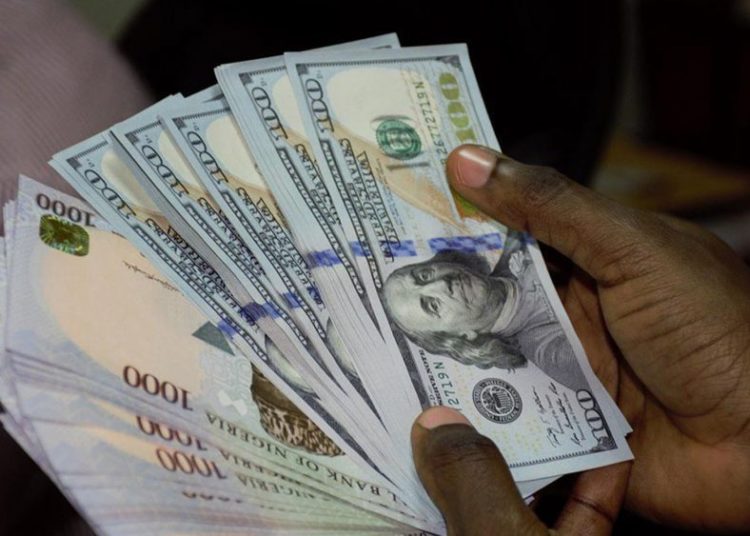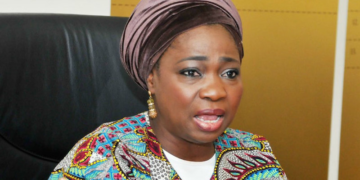The unification of Nigeria’s foreign exchange rates is expected to reduce the pressure on the country’s foreign reserves, among other benefits, analysts have said.
“A key benefit of the policy is the elimination of losses resulting from the arbitrage spread, which could help alleviate pressure on the gross official reserves,” analysts at FBNQuest, a Lagos-based investment firm, said in a note to its clients.
This is as the Naira depreciated against the dollar by 0.38 percent (N3/$1) at the parallel market, on Monday, following increased demand.
“Provisional data from the CBN shows that the regulatory bank’s total FX sales through its official windows amounted to almost $15.3 billion in 2022, resulting in an estimated opportunity cost of approximately N4.6 trillion,” it added.
In a significant move, the Central Bank of Nigeria (CBN) collapsed all segments of the FX markets into the Investors and Exporters (I&E) window on June 14, 2023.
This means that all eligible FX transactions in the market will now be conducted exclusively through the I&E window.
Assessing Pros And Cons Of Forex Market Float On Economy
The I&E market functions by a willing buyer, willing seller system, where an entity with demand for FX seeks out another entity with FX to sell at an agreed price through an authorised dealer.
The exchange rate gap/spread between the official and the parallel market last Wednesday closed by 99.33 percent to N1.83 per dollar from N275 in April this year. The dollar was quoted at N763.17 at the I&E window and at N765 at the parallel market. The naira-dollar exchange rate converged on Tuesday, closing at the rate of N756 at both markets.
The FBNQuest said a significant fiscal benefit is the expected increase in revenue disbursements to the federal, state, and local governments as a result of the higher exchange rate applied to convert oil revenue proceeds.
It, however, said a negative implication is a potential rise in the naira value of the government’s external debt stock and by extension the debt service burden.
“Nigeria’s external debt stock totaled $41.7 billion as of the end of 2022, roughly equivalent to N18.7 trillion based on an official rate of N448.6/$. Assuming the FX rate eventually settles at N750/$, this would result in a 57 percent rise in the naira value of the external debt stock to N31.3 trillion,” it said.
Data from the National Bureau of Statistics showed that foreign direct investment (FDI) in the country fell by 33 percent to $468.91 million in 2022.
Analysts believe that the unification of the naira through the consolidation of the FX markets will drive investor confidence higher.
“In our opinion, this development is positive as it is expected to boost investors’ confidence further, thus, attracting FX inflows. Nonetheless, we maintain that an increase in FX supply and conscious FX management will allow the fruits of the development to be fully enjoyed,” said Meristem research analysts in their June 16 note.
Analysts at Lagos-based CardinalStone, in their June 19 note, said removing restrictions on domiciliary accounts may combine with the flexible FX pricing framework to support improved capture of autonomous dollar inflows into the country in the near to medium term and boost confidence.
Meanwhile, during the intra-day trading on Monday, the dollar quoted at the rate of N773 as against N770 quoted on Friday at the black market.
Traders attributed the naira depression to increased demand for dollars, mostly from individuals who want to travel for education, tourism or for business.
“The demand for dollars is rising and that is the reason the rate is lower today than Friday,” said one of the traders.
Naira depreciated by 0.65 per cent on Friday at the Investors and Exporters (I&E) forex window as the dollar was quoted at N770.17 as against N765.13 quoted on Thursday, data from the FMDQ indicated.
The Central Bank of Nigeria (CBN) on June 14, 2023, abolished segments of the official FX market to the I&E Window, where the “Willing buyer and Willing seller” was re-introduced. Based on this adjustment, the official rate rose from N463.38/$ to N632.77/$ and has since averaged N669.0/$, a report by Agusto & Co, a Pan-African Credit Rating Agency, noted.
“Under Godwin Emefiele, the suspended CBN governor’s leadership, Nigeria operated with a multiple exchange rate system that heavily relied on a controlled official rate, resulting in limited liquidity for businesses and individuals. This, in turn, led to increased demand for foreign currency in the parallel market, where exchange rates carried a significant premium, the report said.





